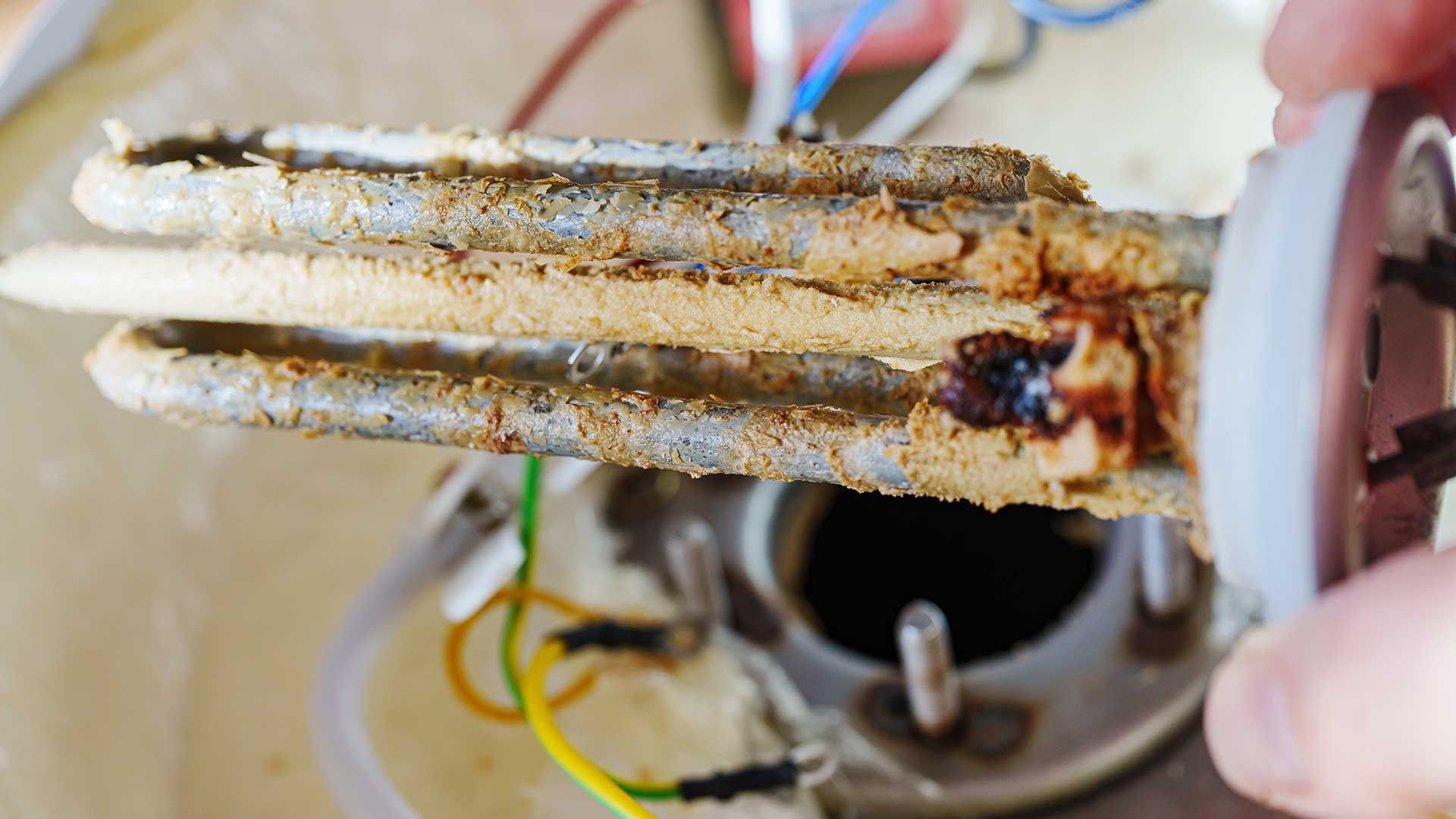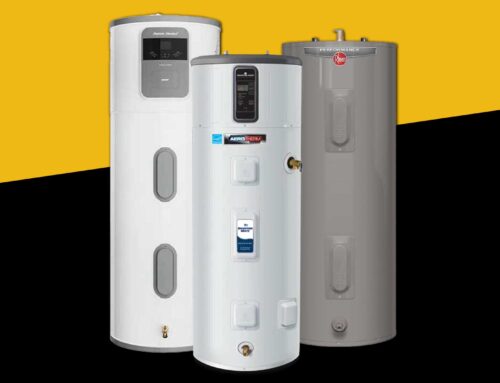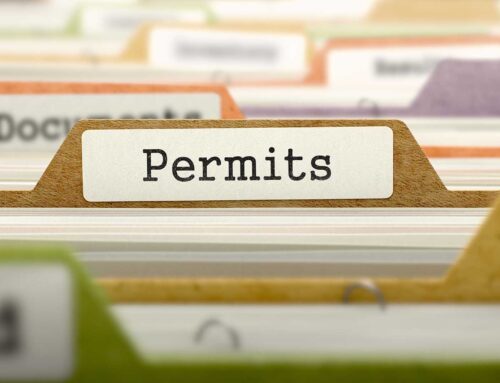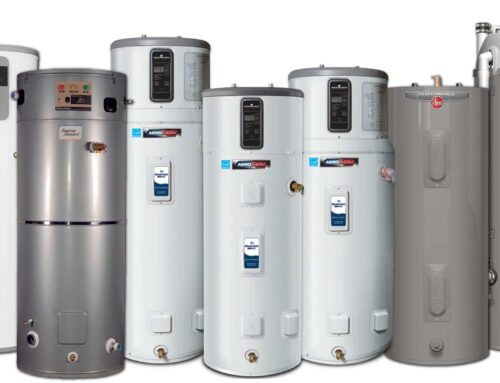Your water heater is one of the hardest working appliances in your home. If you have hard water, like most people in the California Bay area, it could also be one of the most vulnerable appliances.
Hard water can decrease your water heater’s efficiency, shorten its lifespan, and rack up your energy bills. Translation: hard water is definitely not good for your water using appliances.
Let’s look at the impact of hard water on your water heater, the signs to watch out for, and what you can do to protect your water heater from hard water havoc.
What is Hard Water?
Hard water contains a high concentration of minerals, particularly calcium and magnesium. While these minerals are naturally occurring and safe to drink, they can wreak havoc on plumbing systems, and appliances.
Hard water leaves behind deposits, often called scale buildup. It usually looks like chalky, off-white stains. If the water has been heated, like inside your water heater, you can also end up with solid deposits of calcium carbonate inside your appliance.
These mineral deposits aren’t just an eyesore. They build up over time, affecting everything from how your water flows through your pipes to the lifespan of your appliances.
The Impact of Hard Water on Water Heaters
Hard water might seem harmless, but it can do some serious damage to your water heater over time. Here’s how it affects your water heater system:
Mineral Buildup
Mineral deposits settle at the bottom of your water heater. If your water heater isn’t flushed regularly, hard water can lead to a thick layer of sediment inside your unit. This reduces the efficiency of your water heater, which means it will need to use more energy to heat your water.
Increased Corrosion Risk
When the minerals in your hard water react with the metal inside your water heater, it causes a chemical reaction that can lead to rust and corrosion. If the corrosion gets bad enough, it can eat through the wall of your water heater, causing leaks.
Decreased Lifespan of Your Water Heater
The harder your water heater works, the quicker it wears out. Without proper maintenance, hard water and scale buildup can significantly reduce the lifespan of your water heater unit.
How Long Does a Water Heater Last with Hard Water?
Generally, a hot water heater should last between 8–12 years. Depending on how hard your water is, you can expect your water heater to wear out roughly two years sooner than it would have with soft water.
Signs of Hard Water Damage in Your Water Heater
Not sure if hard water is taking a toll on your water heater? Keep an eye out for these common signs of hard water damage:
- Rumbling or Popping Sounds: These noises occur when mineral deposits accumulate at the bottom of the tank. If you’ve got a noisy water heater, here are some more tips to help you quiet that water heater down.
- Reduced Hot Water Supply: If your hot water is running out faster than normal, sediment buildup could be reducing your water heater’s efficiency.
- Fluctuating Water Temperatures: Mineral deposits can interfere with your water heater’s heat sensor, causing inconsistent water temperatures. If your water is getting too hot, even when you haven’t changed the temperature, it could be a hard water problem.
- Higher Energy Bills: A water heater struggling to keep up with demand will use more energy. Increased energy consumption translates to higher heating costs.
- Visible Residue on Faucets or Fixtures: If you see white, chalky deposits around faucets and fixtures, hard water is probably affecting your entire plumbing system, water heater included.
How to Prevent Hard Water Damage in Your Water Heater
Whether you already have an existing water heater or are planning to install a new one, taking preventive action to improve hard water conditions will help extend your water heater’s lifespan.
Tips to Reduce the Effects of Hard Water on Water Heaters:
- Flush Your Tank Regularly: Flushing the water heater at least once a year helps remove the minerals that accumulate inside.
- Check Your Anode Rod: This device, also known as the sacrificial anode rod, attracts corrosion to itself. It will give you a visual of the impact of hard water on your water heater. Changing your anode rod regularly helps keep sediment buildup and corrosion from negatively affecting your water heater tank.
- Lower the Water Temperature: The hotter the water, the quicker scale buildup happens. If you lower your water temperature, not only will you reduce energy consumption but you will also be able to delay the adverse effects of hard water on your water heater.
- Use a Water Softener: A water softener can help reduce the presence of minerals in your water supply and lessen scale buildup. If you get a whole house water softener, you can improve the water quality and protect the rest of your home’s plumbing system at the same time.
Upgrade Your Hard Water Protection
If you’re already dealing with hard water damage or want to take proactive steps to protect your water heater, Barnett Plumbing can help. Call (925) 294-0171 to schedule an on-site water quality test. Our expert team will use the results to recommend the best hard water solutions for your home.
Don’t wait until hard water has already done its worst—contact Barnett Plumbing now to prevent hard water havoc!






